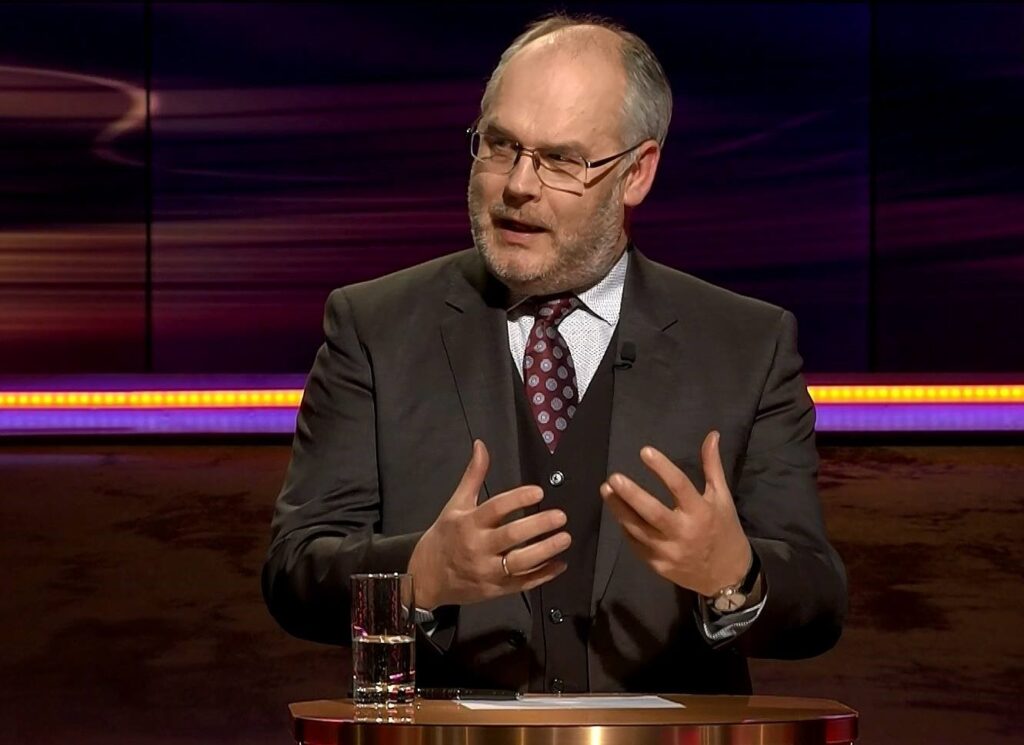The Estonian parliament, Riigikogu, convened on 30 August and 31 August to elect a new Estonian president; there was just one candidate – Alar Karis, the director of the Estonian National Museum, as the incumbent president, Kersti Kaljulaid, was not supported by the governing Centre Party and the Reform Party.
On Monday, 30 August, the Estonian parliament, Riigikogu, convened to elect the new Estonian president in a first round of voting. There was just one candidate, the director of the Estonian National Museum, Alar Karis (63), who was nominated by all 25 members of the parliament’s Centre Party faction and all 34 members of the Reform Party faction.
In the first round of voting, Karis received 63 votes in favour of his candidacy as the president – meaning he was short of five votes for being elected.
Since he didn’t receive the required majority, the second round of voting was held on Tuesday, 31 August – and the coalition government again nominated Karis as the candidate. In a secret ballot, where each member of the Riigikogu had one vote, Karis received 72 votes in favour of his candidacy as the president and he was duly elected. Eighty MPs participated in the second round of voting and eight ballot papers were left unmarked.
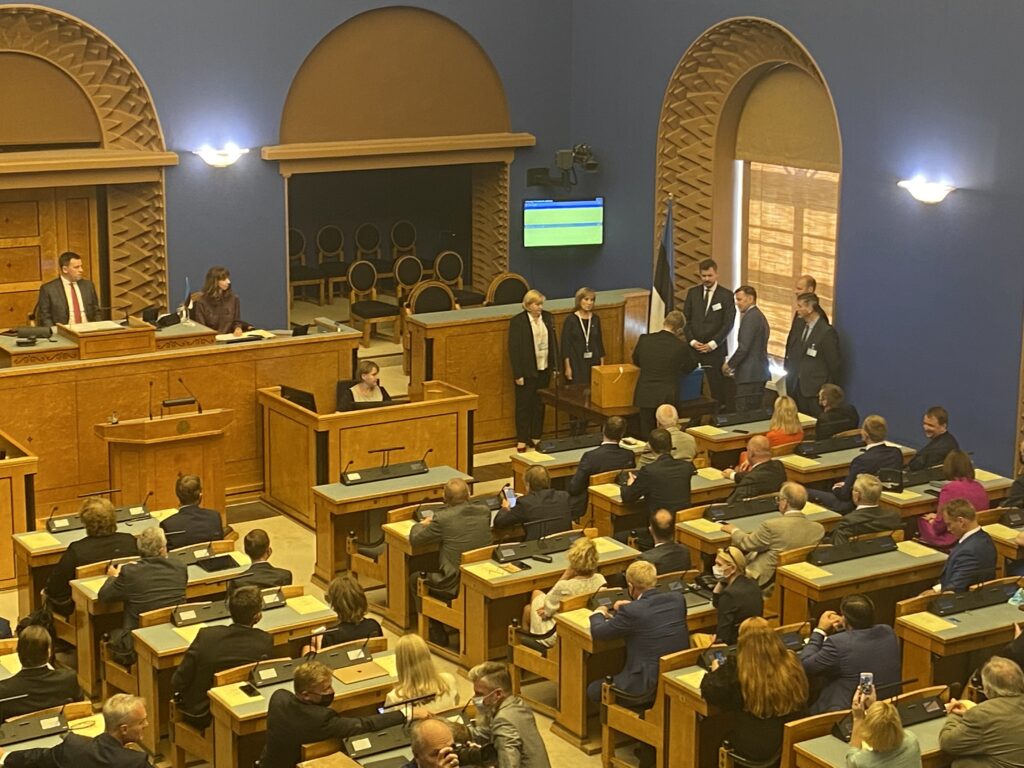
Who is Alar Karis?
Karis is molecular geneticist and developmental biologist by education – he graduated from the veterinary department of the Estonian University of Life Sciences and has had a long academic and civil service career.
He became a professor at the University of Tartu in 1999. From 2003-2007, he was the rector of the Estonian University of Life Sciences and from 2007–2012, the rector of the University of Tartu. From 2013-2018, he was the Auditor General of Estonia – the head of the National Audit Office, an independent institution whose function is to investigate how the state and local authorities have spent the taxpayers’ money and what they have given them for it.

Since 2018, Karis has been the head of the Estonian National Museum in Tartu.
Kersti Kaljulaid opposed by Jüri Ratas and the Centre Party
Karis’ nomination was proposed by the former Estonian prime minister and the current parliament speaker, Jüri Ratas (Centre Party), who opposes giving the incumbent president, Kersti Kaljulaid, a second term.
Ratas’s opposition to Kaljulaid is rooted in the period of 2019-2020, when Ratas formed a coalition with the far-right Estonian Conservative People’s Party, known as EKRE, and Kaljulaid publicly opposed many of the viewpoints and statements by EKRE politicians, then holding many key posts in the government.
Although while in the opposition, the Reform Party supported electing Kaljulaid for a second term, they had a change of heart, once in power. The party’s leader and the incumbent prime minister, Kaja Kallas, maintains that Kaljulaid lacks a necessary number of votes to elect the president in the parliament. The only party in the parliament that publicly voiced their support for Kersti Kaljulaid, was the Social Democrats. However, the party has just 11 MPs in the 101-seat parliament.
Kersti Kaljulaid’s election for a second term was also supported by centre-right Estonia 200 party – however, the relatively new party has no seats in the parliament.
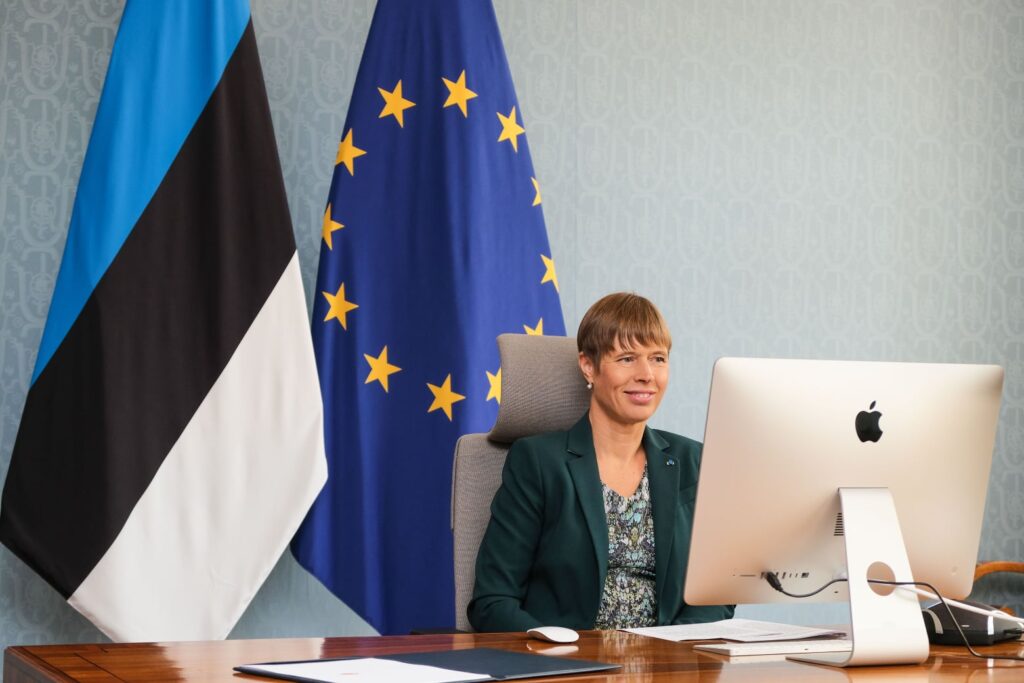
EKRE also proposed their candidate – the former speaker, Henn Põlluaas. However, at least 21 MPs are needed to nominate a presidential candidate in the parliament – and EKRE only has 19 MPs.
Electoral college convened if Riigikogu fails
The Estonian president is elected by secret ballot, where each member of the Riigikogu has one vote. The candidate who receives the votes of a two-thirds majority of the membership or at least 68 members of the Riigikogu will be considered elected.
The first round of voting in the Riigikogu was held on Monday, 30 August. Karis received 63 votes in favour of his candidacy as the president – meaning he was short of five votes for being elected.
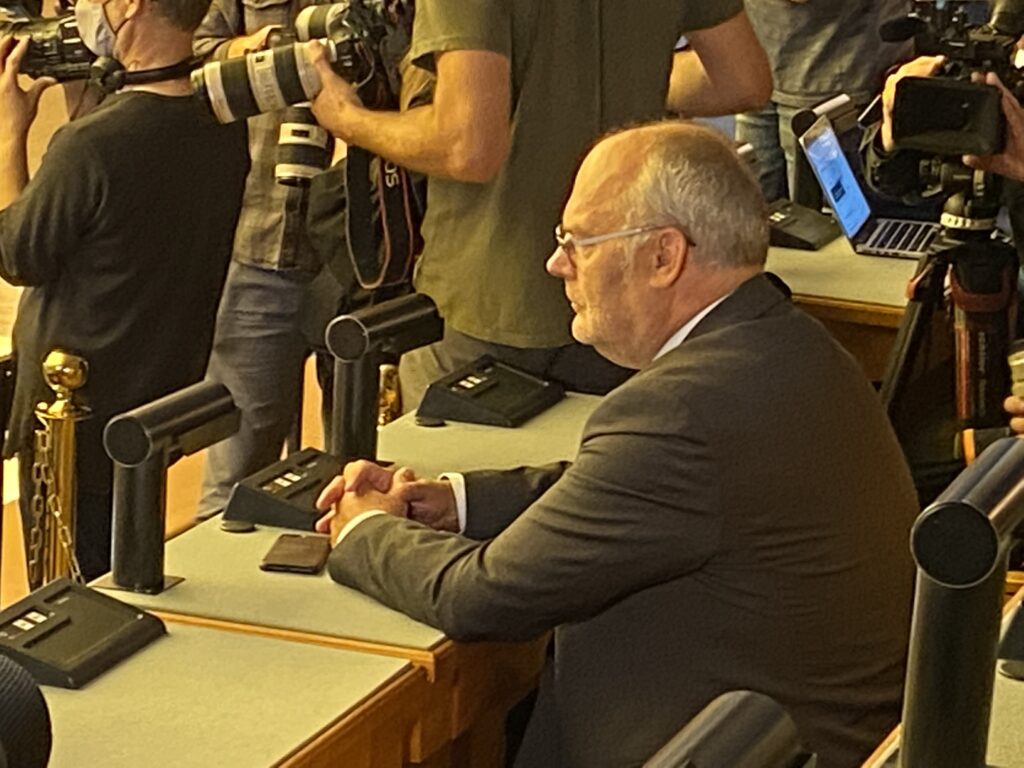
Since Karis didn’t receive the required majority, the second round of voting was held on Tuesday, 31 August. Karis received 72 votes in favour of his candidacy and was thus elected the president. Eighty MPs participated in the second round of voting and eight ballot papers were left unmarked.
Had the Riigikogu failed to elect the president on the second round of voting, the third and final round of voting would have taken place.
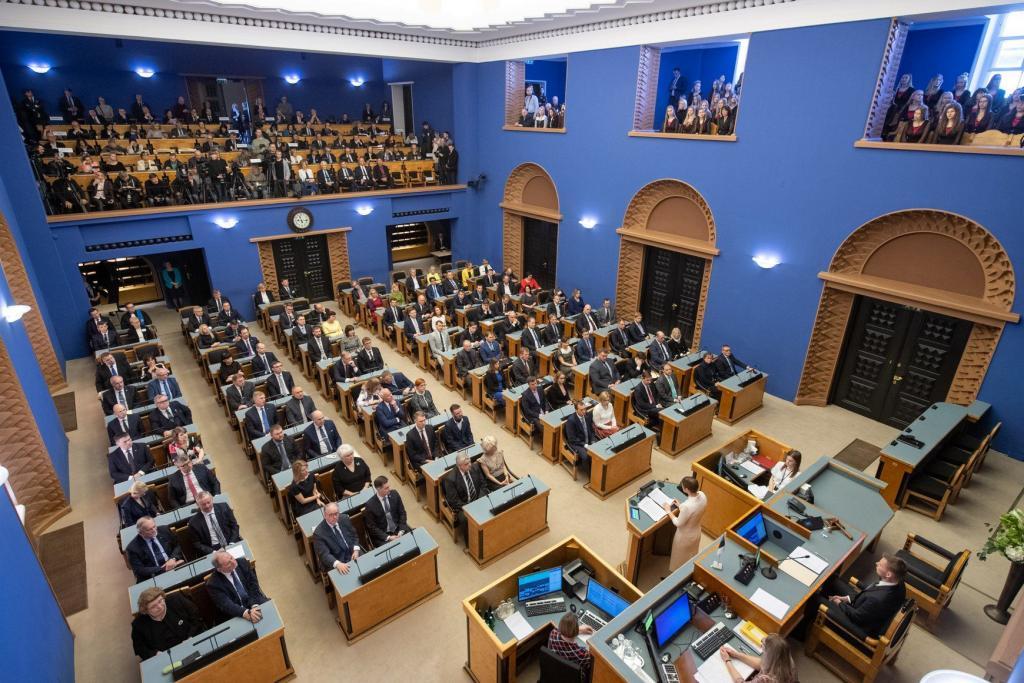
Had the Riigikogu not elected the president after three rounds of balloting, an electoral college would have been convened, comprising all members of the parliament and elected representatives of all municipalities.
The electoral college, numbering 208 delegates, would have convened within one month after the third round of voting in the Riigikogu. In the electoral college, two rounds of voting is allowed and the candidate who receives the majority votes, is considered elected. If no candidate receives the required majority, the election goes back to the parliament.
Kaljulaid popular among the general population
A survey conducted from 17-24 August by polling company Norstat on behalf of the Estonian newspaper, Eesti Päevaleht, asked the general population as to who would make the best next president.
Seven names were proposed for consideration – Kersti Kaljulaid, Alar Karis, Jüri Luik (a former defence and foreign minister, currently the Estonian ambassador to NATO), Eiki Nestor (a former MP and parliament speaker), Henn Põlluaas, Jüri Ratas and Tarmo Soomere (the president of the Estonian Academy of Sciences).
Kaljulaid was overwhelmingly the most popular candidate as 35% of the respondents supported her. Jüri Ratas was second (12%) and Henn Põlluaas third (9%), while Alar Karis gathered just 8% of support, followed by Tarmo Soomere (7%), Jüri Luik (5%) and Eiki Nestor (3%).
Cover: Alar Karis in an Estonian television programme in 2017. Photo courtesy of Alar Karis’ official Facebook page.

